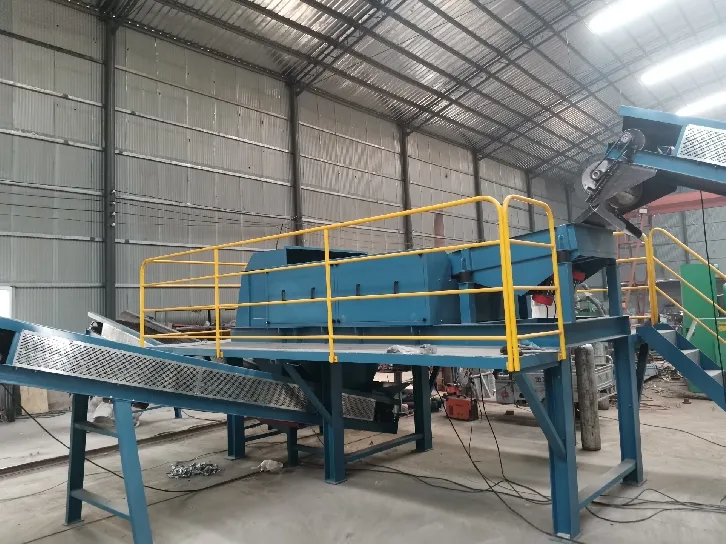
10 月 . 19, 2024 00:55 Back to list
The Importance of Aluminium Recycling Plants
Aluminium recycling plants play a pivotal role in the sustainable management of resources and environmental conservation. As the demand for aluminium continues to rise, stemming from its wide applications in industries such as automotive, aerospace, construction, and packaging, the need for efficient recycling processes becomes increasingly critical. Aluminium recycling is beneficial not only for the environment but also for the economy, making aluminium recycling plants essential fixtures in modern industry.
Recycling aluminium is remarkably efficient, as it requires only about 5% of the energy needed to produce new aluminium from raw materials. This substantial energy savings translates into lower greenhouse gas emissions, significantly reducing the carbon footprint associated with aluminium production. In fact, recycling one ton of aluminium can save approximately 9.2 metric tons of carbon dioxide emissions. Given the growing urgency to combat climate change, the importance of aluminium recycling plants cannot be overstated.
Aluminium is a highly versatile and durable material, but its extraction and processing can be environmentally detrimental, often leading to habitat destruction and pollution. Recycling plants mitigate these impacts by collecting, processing, and re-melting scrap aluminium to produce new products. This closed-loop system not only conserves natural resources but also minimizes waste, as aluminium can be recycled indefinitely without losing its quality. As a result, aluminium recycling plants contribute to a more circular economy, where materials are continuously reused and repurposed.

The operation of an aluminium recycling plant involves several key steps. The process typically begins with the collection of aluminium scrap, which can come from various sources including consumer products, construction waste, and industrial scraps. Once collected, the scrap is sorted to remove impurities and non-aluminium materials. After sorting, the clean aluminium scrap is shredded and melted in large furnaces, transforming it into molten aluminium. This molten metal can then be cast into molds and cooled to produce new aluminium ingots, which can be used in manufacturing new products.
In addition to environmental benefits, aluminium recycling plants also have a significant economic impact. They create jobs in the recycling sector and can stimulate local economies by providing a steady supply of high-quality recycled aluminium at lower costs than primary aluminium. Furthermore, the investment in recycling technology and infrastructure can lead to innovation in material recovery methods, further enhancing efficiency and sustainability.
In conclusion, aluminium recycling plants are vital for promoting sustainable practices in the aluminium industry. By reducing energy consumption, lowering greenhouse gas emissions, conserving resources, and positively impacting economies, these facilities are a crucial element in the transition towards a more sustainable future. As awareness of environmental issues and resource management grows, the role of aluminium recycling will likely become even more prominent in our global efforts to create a sustainable economy.
Latest news
Unveiling the Power of Eddy Current Separator
NewsSep.25,2024
Transform Your Home Recyclin:home metal shredder
NewsSep.25,2024
The Future of Waste Management with Recycling Line Picker
NewsSep.25,2024
The Benefits of a Metal Recycling Plant
NewsSep.25,2024
Revolutionize Material Separation with Onwang Technology
NewsSep.25,2024
Innovative Waste Management: Unveiling the MSW Sorting Plant
NewsSep.25,2024